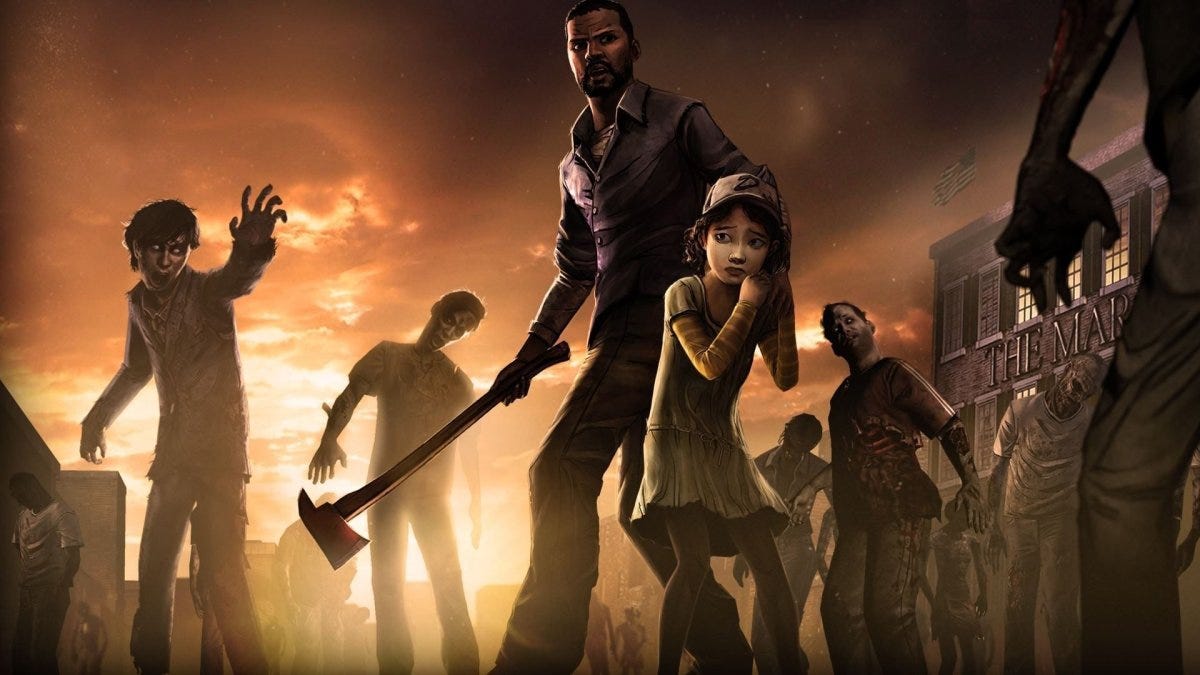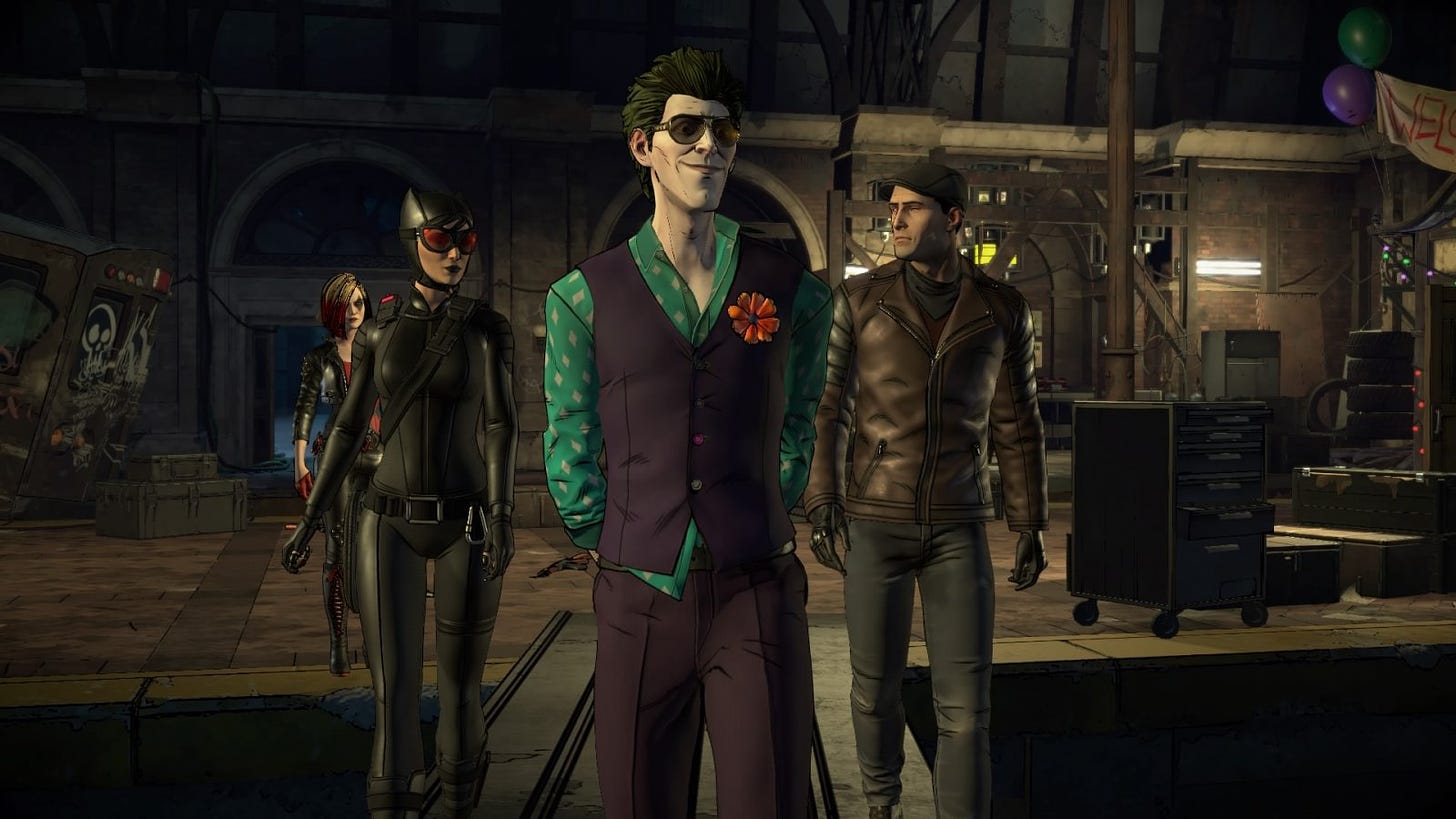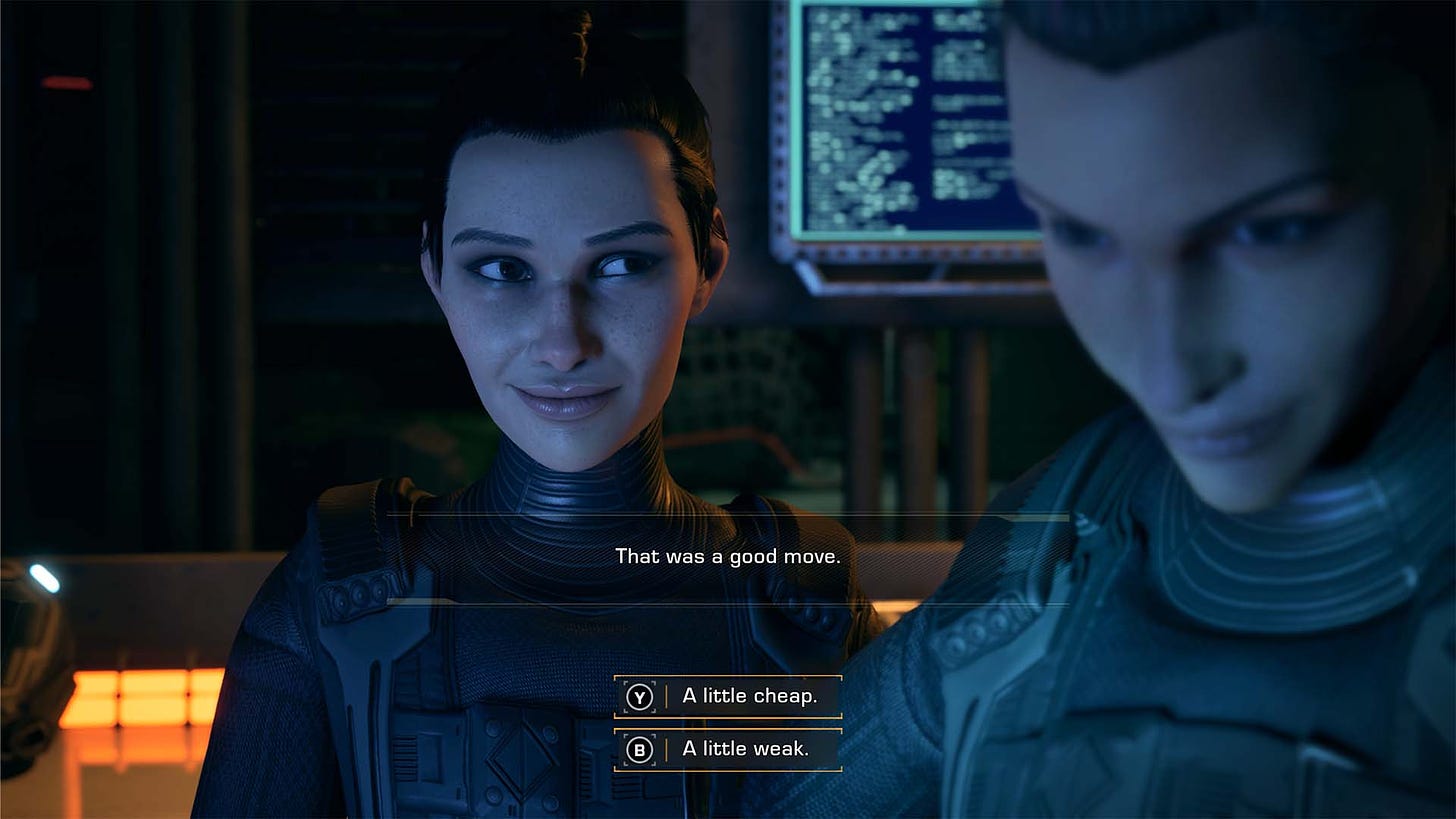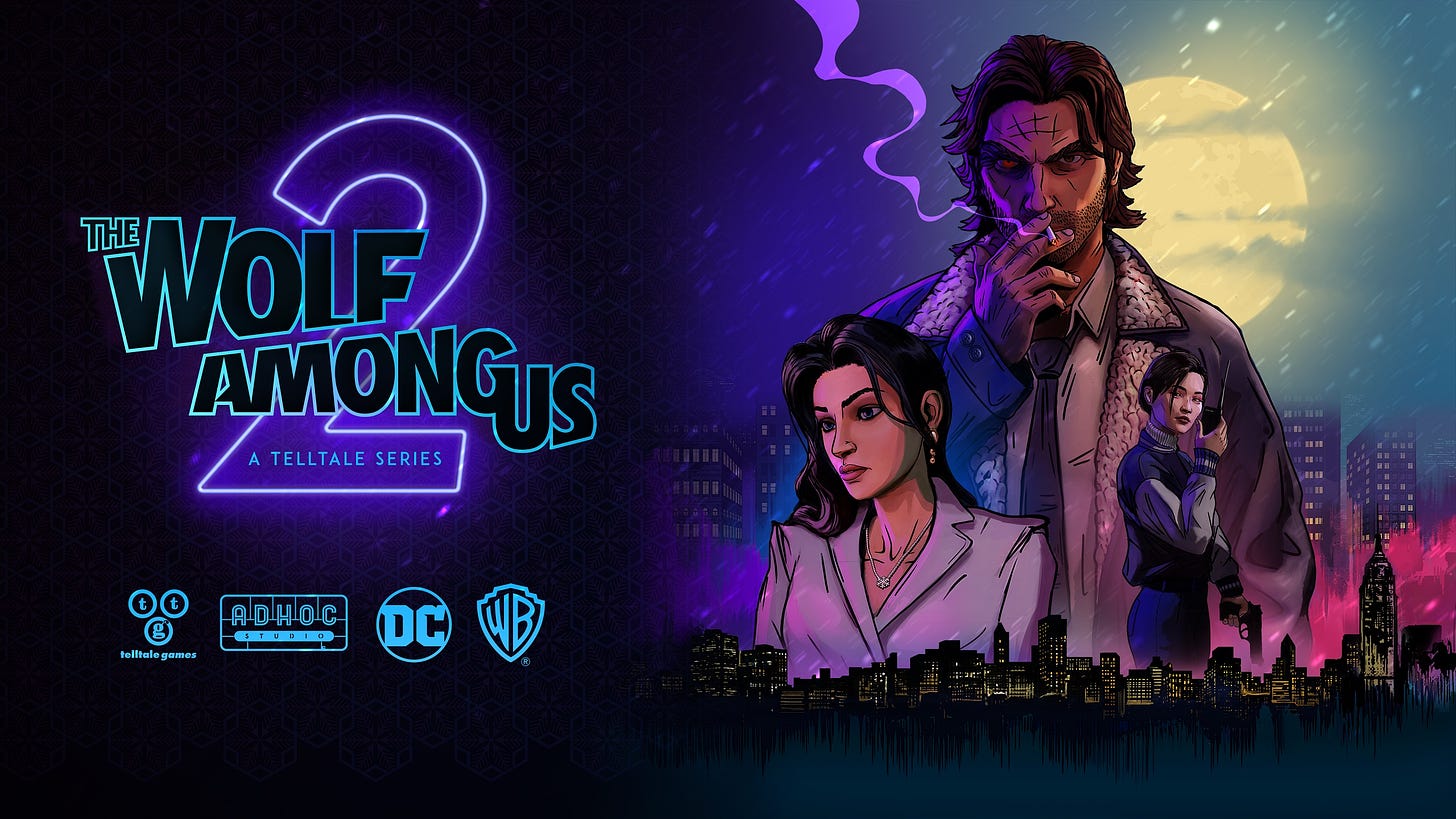A tattletale that told the tale of Telltale's abandonment of The Wolf Among Us 2's development spun little more than a tall tale - though the studio's prospects are hairy
A howl to the winds blows over swiftly, though its message may linger.
When Telltale reanimated The Walking Dead in 2012, their model of storytelling was a minor revolution unto itself. Though point-and-click titles had once been a staple of the medium, notably pioneered by LucasArts’ influential stable, the genre was distinctly out of vogue prior to Telltale’s adaptation of Robert Kirkman’s comic-turned-television phenomenon. Though the studio had produced numerous exercises in the genre previously, courting Bob Gale to help them pen a serviceable extension of the Back to the Future canon, their profile was raised through a revision of their aesthetic - drawing upon comic, cell-shaded techniques to mimic a graphic novel made manifest. However, Telltale’s emotional prowess emerged through The Walking Dead’s suite of moral crises, framed in an episodic regard to approximate novelistic ambition. Aside from three verbal options and one awkward silence for dialogue, critical divergences in the story came to a challenging binary: deciding who is to die, whether to lie, or which way to go, drawing upon familiar survival impulses in a bracingly implicit form.
You have to question who the real walking dead are: the zombies, or this current iteration of Telltale.
The Walking Dead unfurled the tale of a grizzled, guilted man and a tenacious young girl a year before The Last of Us made us all feel like monsters - though the former perhaps provided a brighter glimmer of hope by the end, the direct opposite of the latter. The game received rapturous acclaim, receiving Game of the Year accolades from numerous publications and earning a nomination at the 2013 BAFTA Awards; Journey was a deserved victor. Nevertheless, the team continued to iterate upon the design, carving a sound niche for themselves against larger publishers. However, the studio of a mere 100 people expanded at a prodigious rate; management began to codify relationships with Mojang, HBO, and Gearbox Software. Their evolution from a contained team to a middleweight enterprise managing multiple licenses at a time strained their development pipeline. Though The Wolf Among Us, based upon Bill Willingham’s Fable series, served as a logical, celebrated heir to The Walking Dead, successive instalments expediated a particular malaise within the studio. Crunch permeated the working culture, leading to developers being wantonly rotated between active projects. Employees were said to have worked between 14 and 18 hours for each day of the week, stuck within a perpetual cycle of production.
The fruits of their labour, however, were soured from this process. Marquee titles in Game of Thrones, Guardians of the Galaxy, and Minecraft drastically underperformed. Their scope of development limited their narrative ambition; as the stakes of their storytelling lessened, the effectiveness of their bifurcated pathways were rendered as cosmetic curiosities. Telltale were overexposed, and their creative woes swiftly became existential. Though their interpretation of Batman culminated in a surprisingly triumphant take on the Joker mythos, it was too late: the studio closed before it could complete The Walking Dead’s final season - later to be completed by Kirkman’s proprietary Skybound Games. Consequently, Telltale’s management faced a lawsuit for violating California labour laws, firing 250 employees without cause, notice, or severance; their health benefits would expire in less than a month. When it comes to violations of worker’s rights, silence is not an option.
Telltale’s spin on Batman let you clown around as Bruce Wayne with an early form of the Joker; you can be friends!
I have a certain fondness for Telltale’s madcap four years prior to their burnout. Tales from the Borderlands is a delightful, commentative romp through its inspirator’s novelties; their Batman chapters, despite lacking the tactility of Rocksteady’s trilogy, are reasonably successful in evocating the procedural, deductive elements of the Caped Crusader. Their fall, however, was fated: the absence of diversity between titles, save for their intellectual property, homogenised their experiences in a negative respect. Thus, when the studio was revived by LCG Entertainment less than a year from its collapse, the expectation was that their model would evolve to carve a worthy niche for itself once again. This new enterprised announced both a belated successor to The Wolf Among Us and a prequel to The Expanse - the latter developed in tandem with Deck Nine, known for their work upon the Life Is Strange series, predicated upon an elevated synthesis of the Telltale formula. Developed via the Unreal Engine, granting their concept a greater deal of physical mobility, The Expanse promised to settle the studio back into the upper stratosphere of the industry.
Regrettably, The Expanse was left adrift in orbit: its mixed reception echoed notes of criticism heard throughout its previous iteration, further hindered by a delayed debut on Steam following its episodic unveiling on the Epic Games Store. Granted, the concept of a playable precursor to a television series - itself drawn from a series of novels - appeals most to an audience acclimated with the material; perhaps the minor engagement represents the ceiling of its popularity. Regardless, a pertinent question arises: why not prioritise The Wolf Among Us 2?
The Expanse rendered the Telltale aesthetic in a manner closer to realism, instead of reinstating its graphic origin.
In September of 2023, around the time of The Expanse’s final episode, Telltale laid off a notable portion of their team; cinematic artist Jonah Huang - a veteran of the last Telltale enterprise - claimed the majority of the studio was let go. This was portended by an announcement earlier in March, stating The Wolf Among Us 2 would instead debut in 2024. CEO James Ottilie cited both the pandemic and a switch from Unreal Engine 4 to 5 as influences upon its delay - the latter is perhaps the most questionable, given that Ottilie noted “quite a bit of work” was achieved on UE4. However, following a full year of silence, a report emerged in the catacombs of r/gamingleaksandrumours that development upon the title has stalled, attributed to budget constraints and difficulties in securing funding. In response, Telltale issued a response to Eurogamer, a direct means of damage control perhaps inadvertently lending credibility to the leak; the user has since deleted their account. The studio promised to “share more … when the time is right”, though the game still has a tentative release window of 2024. Given that very little information is present on Telltale’s website, nor has any form of marketing appeared to date, the game will indeed slip into 2025.
Similarly to The Expanse, The Wolf Among Us 2 will be an Epic Games exclusive on PC, softening its eventual launch on Steam.
If Bigby Wolf were to investigate this case, he would smell trouble at once. When the biggest announcement within the year of game’s release is that it is still alive, all is not well. Whether it is the consequence of difficulties in adapting to Unreal Engine 5 or a lack of solid funding, the end is the same: this new take on Telltale are rapidly ageing into the fate of its forebearer. The Expanse’s underperformance places additional presure upon The Wolf Among Us 2 to reassert their storytelling acumen, though the game - which we know virtually nothing of to this point - will conceptually be in the lineage of its predecessor, perhaps with greater versatility in physics and movement. Telltale 2.0 will not, nor be able to burden itself with licenses once again. However, if their financial situation is this dire, can they rely upon sporadic releases to soothe the fatigue of their design?
No, if very recent history serves as an indication.







